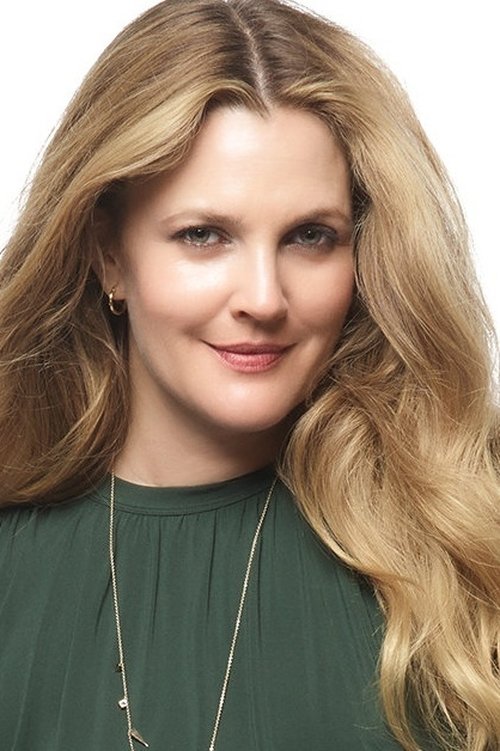Drew Blythe Barrymore (born February 22, 1975) is an American actress, director, producer, businesswoman, and talk show host who is the recipient of numerous accolades, including a Golden Globe and a Screen Actors Guild Award, as well as five Emmy Award nominations and a BAFTA nomination. She is a member of the Barrymore family of actors and the granddaughter of John Barrymore.
Barrymore achieved fame as a child actress with her role in E.T. the Extra-Terrestrial. Following a highly publicized childhood marked by drug and alcohol abuse, she released an autobiography Little Girl Lost. She starred in a string of successful films during the 1990s and 2000s, including Charlie's Angels, Never Been Kissed, Poison Ivy, Boys on the Side, Mad Love, Batman Forever, Scream and Ever After. Barrymore starred with Adam Sandler in several films, including The Wedding Singer, 50 First Dates and Blended.
Her other films include Firestarter, Donnie Darko, Riding in Cars with Boys, Confessions of a Dangerous Mind, Charlie's Angels: Full Throttle, Fever Pitch, Music and Lyrics, Going the Distance, Big Miracle and Miss You Already. She also starred in her directorial debut film Whip It. She won a SAG Award and a Golden Globe for her role in Grey Gardens. She starred in the Netflix series Santa Clarita Diet and currently hosts her syndicated talk show The Drew Barrymore Show.
Barrymore is the founder of the production company Flower Films. It produced several projects in which she has starred. She launched a range of cosmetics under the Flower banner in 2013, which has grown to include lines in make-up, perfume and eyewear. Her other business ventures include a range of wines and a clothing line. E. P. Dutton published a collection of Barrymore's autobiographical essays in a book titled Wildflower in 2015. Barrymore received a star on the Hollywood Walk of Fame in 2004.
Life-loving, people-centric thrill seekers, the ESFP personality type is interested in people and experiences throwing themselves into relationships and life in general, they have a genuine interest in others and their dislike of rules and routine, are justified by their view that their reason for existing is to bring harmony, sympathy and support to peoples' lives so they may slide out of regulations or obligations on the grounds that: 'I just had to do something to help.' The keywords here are 'do' and 'help;' caring and practical in equal measure. The ESFP has an ability to make others feel so special. Down to earth and practical, ESFPs live in the here and now preferring to take life as it comes with the optimistic view that it’s bound to be good, (and if it isn’t then there’s always next time!).
If there is a crisis, the ESFP will be there, taking charge, offering support, revelling in their ability to help, loving the drama. Their energies and infectious enthusiasm, mean that other people will like them, and they will build relationships easily and often. The ability of the ESFP to drop everything and provide immediate, practical support may come at the expense of an ability to plan, schedule and prioritise. However, those on the receiving end will be grateful and left feeling really special. This may also cause a blurring between social time and work time, and the immediacy of the issue will, for the ESFP, be paramount and so it may be difficult to put an issue to 'one side' until a task is completed, or it is time to go home, etc.
The ESFP is not naturally good at follow-through, and will impulsively follow only their own urges, which tend to be the needs of others. Through meeting the needs of others, their own needs are also met; there is a paradoxical self-indulgence in indulging others. On the positive side the ESFP has an ability to make others feel so special, be excellent 'glue' for a team, and good at maintaining morale. As their decisions will be emotional and values-based, people will feel that they are valued and special and, whilst meetings may last longer than average, and little planning gets done, everyone leaves feeling part of something good and indeed feeling good.
The desire to make work a fun place may also cause difficulties in that an ESFP may not be able to take the hard decision - they prefer harmony and fun. This pragmatic desire to help, and do so immediately, means the ESFP will not respond well to being time-bound, or locked into a project. They live primarily in the moment and longer term for the ESFP might be Saturday, probably Friday. The ESFP likes concrete, material things and will take pride in their appearance and fill their lives with lots of experiences, jumping from one to the next in a breathless flurry. This can see them over-commit and take on too much, but their carefree nature means they will tend to charm their way through. As they want (indeed need) to experience everything, the ESFP may well have trouble prioritising as their focus is only for ‘now’ and so follow through won’t come naturally, and they’ll look to leave as many options open as possible, although the ‘F’ side means they will feel genuinely guilty when they let people down. The spontaneous, impulsive nature of this character is almost always entertaining and brings a smile to even the most serious of situations.
Primarily of the moment, extraverted and people-centric ESFPs do not like logic, analysis or abstraction or even thinking too deeply as it is difficult, time-consuming and energy sapping and it takes the focus away from the boundless things to be experienced - and it’s not very much fun. So let’s party!
Choose another celebrity type to compare side by side the different approaches work, attitudes to conflict and the way they engage with others.
